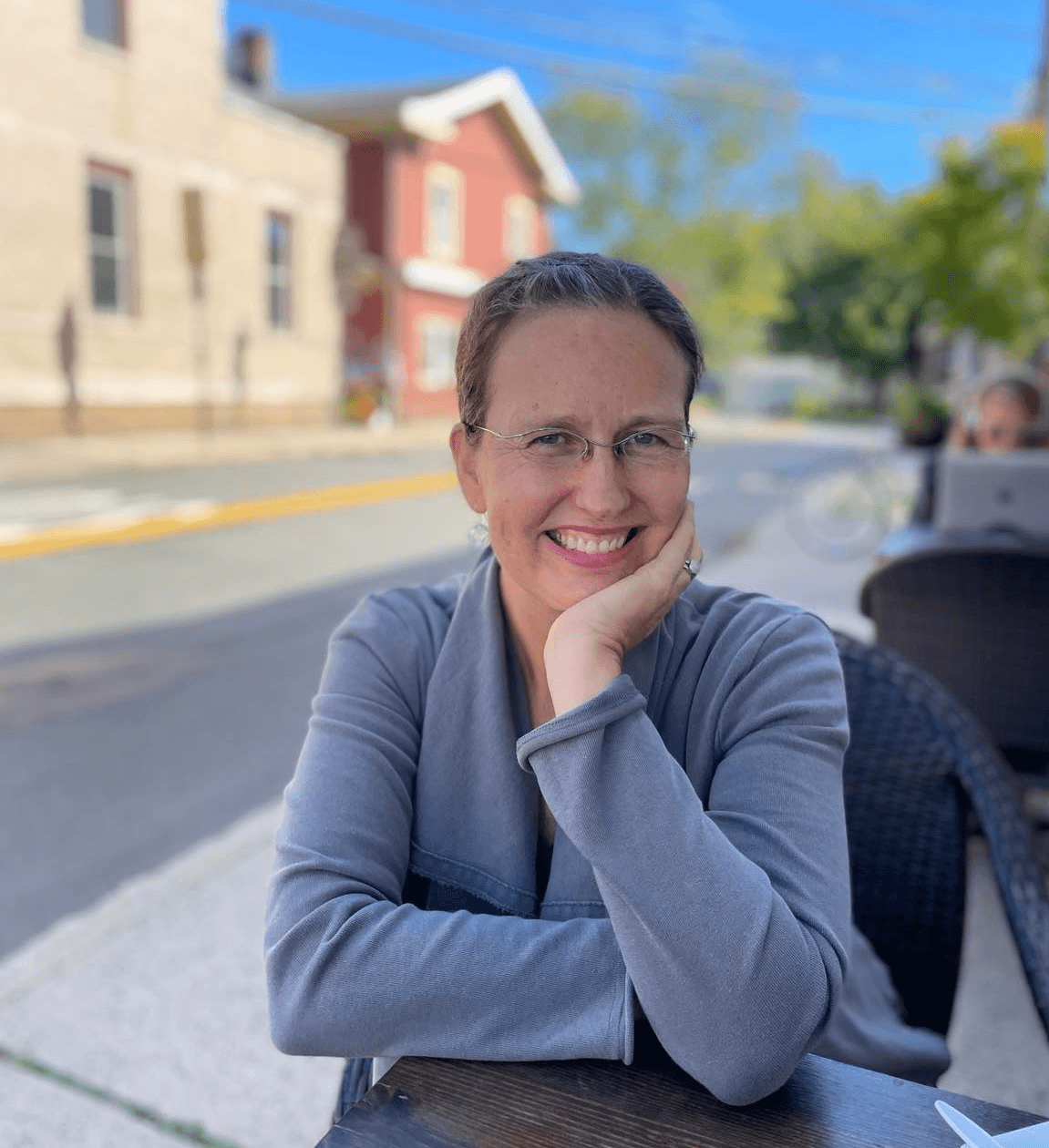Alright – so today we’ve got the honor of introducing you to Jocelyn Jane Cox. We think you’ll enjoy our conversation, we’ve shared it below.
Alright, Jocelyn Jane thanks for taking the time to share your stories and insights with us today. Can you share an important lesson you learned in a prior job that’s helped you in your career afterwards?
For over two decades, I was a figure skating coach to mostly girls and young women ages 6-18. I witnessed all different types of coaching methods around me: tough love, friendship, loud-n-angry, punishing, fear-based, quiet, strict, loose. While I was finding my footing, I tried out a few of these coaching personas – I yelled, I pushed hard – and discovered quickly that, while discouragement can “feed” a few athletes, it mostly just thwarts progress and destroys confidence in the long term.
I landed on a coaching practice that was technical in nature and highly specific, but at the same time, I tried to prioritize fun and creativity. My theory was that if athletes kept coming into the rink with enthusiasm and without dread there was a higher chance they’d stick with it. It doesn’t matter how talented or hard-working you are if you are so miserable in any given sport, hobby, or career, that you quit. My goal was always to support students through the end of high school (and beyond if they wanted). I tried wacky things like showing kids illustrations of gorillas with bad posture (i.e. not how we want to skate, nothing against gorillas) versus an upright giraffe (i.e. better posture for skaters minus about seven feet of neck). I doled out encouraging stickers to kids “way too old” for stickers (no one’s ever too old for a cheesy sticker), and embarrassed myself with all manner of stories or photos from my past. Where there is laughter, there is relaxation. Where there is relaxation, there is increased receptivity to learn and attempt difficult things.
Along the way, I complimented even the tiniest improvements and highlighted inherent strengths. When I left coaching skating a few years ago to try my next difficult thing i.e. writing full-time and coaching others through their own writing projects, I brought the same levity, some silliness, and a determination to elevate the positive. If someone is struggling with their edit, I wear my T-shirt with a bespectacled bunny who is “an expert editor,” I bring nesting dolls to memoir classes to demonstrate any number of concepts, and invoke songs or relevant reels. My theory is exactly the same as it was on the ice: only if writers keep writing will they have the opportunity to improve and reach their goals. I’ve found that connecting with joy in any process increases the chance of success.
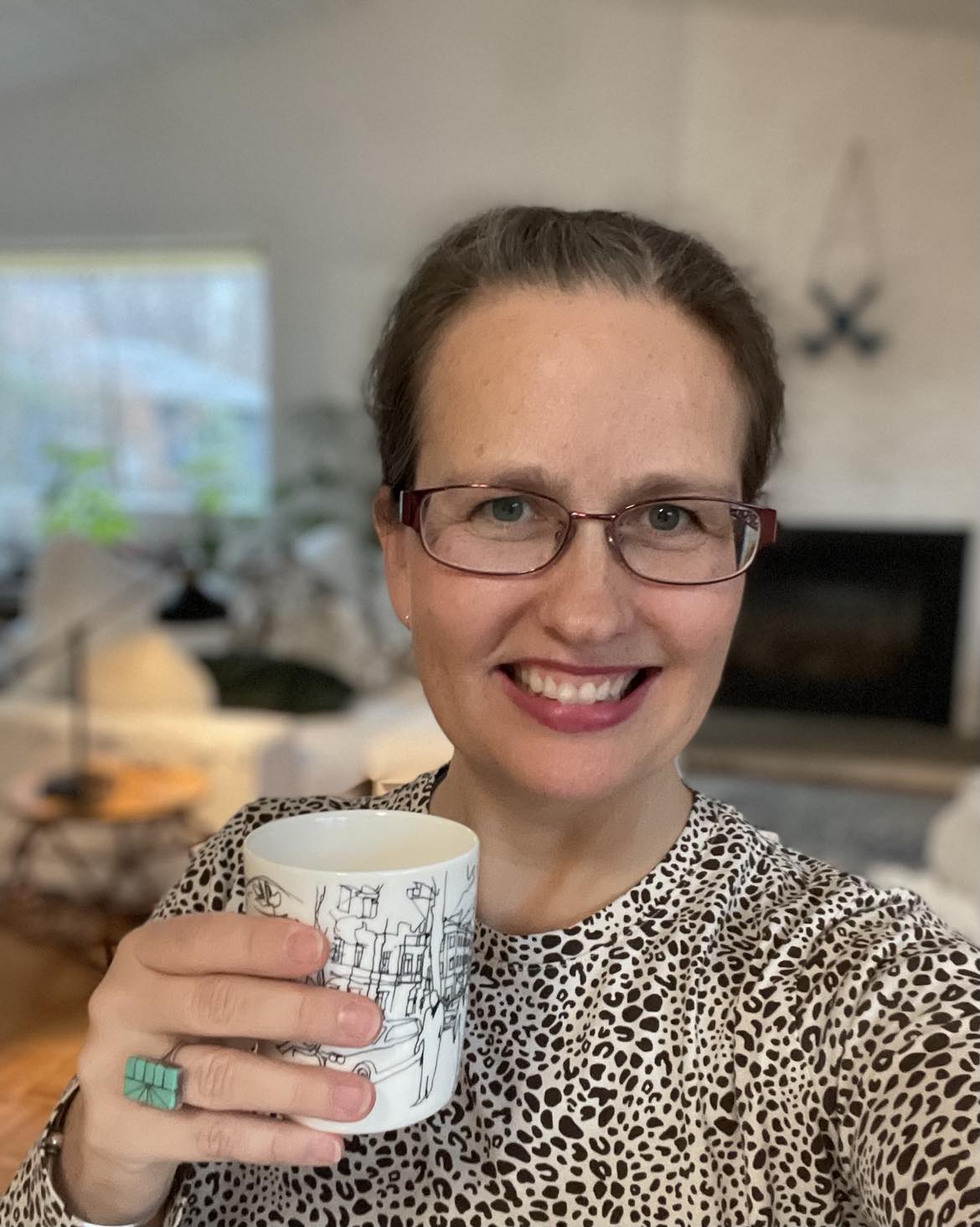
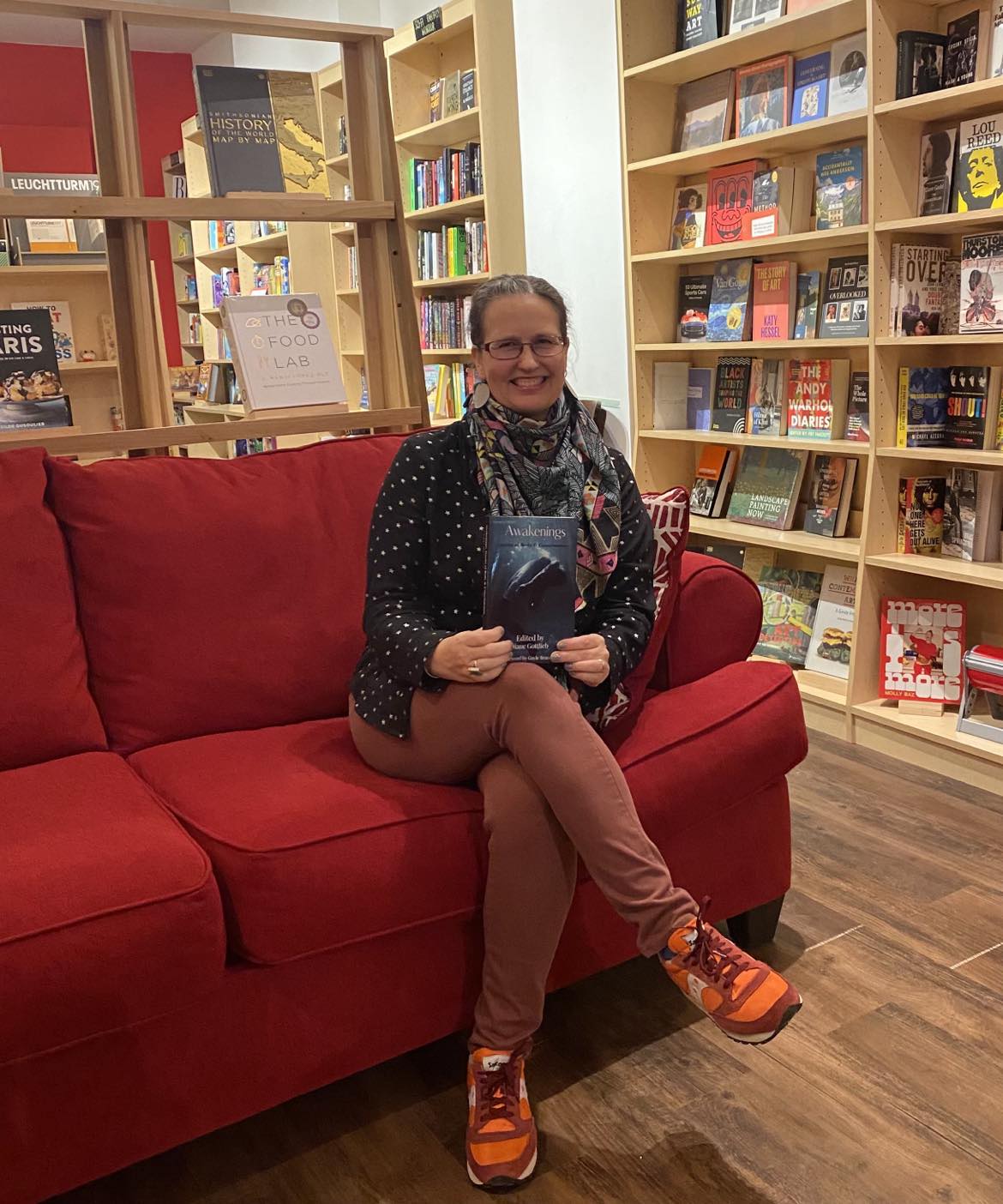
Jocelyn Jane, love having you share your insights with us. Before we ask you more questions, maybe you can take a moment to introduce yourself to our readers who might have missed our earlier conversations?
My book, Motion Dazzle: A Memoir of Motherhood, Loss, and Skating on Thin Ice will be released by Vine Leaves Press on September 30, 2025. It’s about losing my elegant and supportive mother on my son’s first birthday, the day I hosted a zebra-themed party at our house. On that day, and through the challenging times before and after it, I drew on strengths I developed as a figure skater. I competed in the sport for 11 years: ages 8-19, participating in the US National Figure Skating Championships four times with my brother as my skating partner. I went on to coach at the national level for over 20 years. I’m interested in how we all have to “put on a performance” in our daily lives and push through pain, even when not wearing skates. For the most part, I don’t see this as a negative thing or a form of fakery, but rather a necessary coping mechanism, especially when caring for elders and children.
I have loved writing since I was very young. I studied English with a focus on Creative Writing at the University of Pennsylvania as an undergrad and went on to get my MFA in Creative Writing (fiction) at Sarah Lawrence College. My personal essays and creative nonfiction pieces have appeared in numerous commercial publications – from The New York Times and Slate to Newsweek and WIRED – and in numerous literary magazines such as The Offing, Colorado Review, and HAD.
I now teach writing classes and work with writing clients privately. I support adults working on their personal essays or memoirs and I also support college and graduate school applicants working on their admissions essays. The work ethic I learned as a skater has impacted not only my own writing career but also what I impart to others. It takes a lot of practice and repetition to become a strong, accomplished athlete and the same thing is true in writing. Instead of fearing or resisting hard work, we can embrace it and figure out how to make it as enjoyable and rewarding as possible.
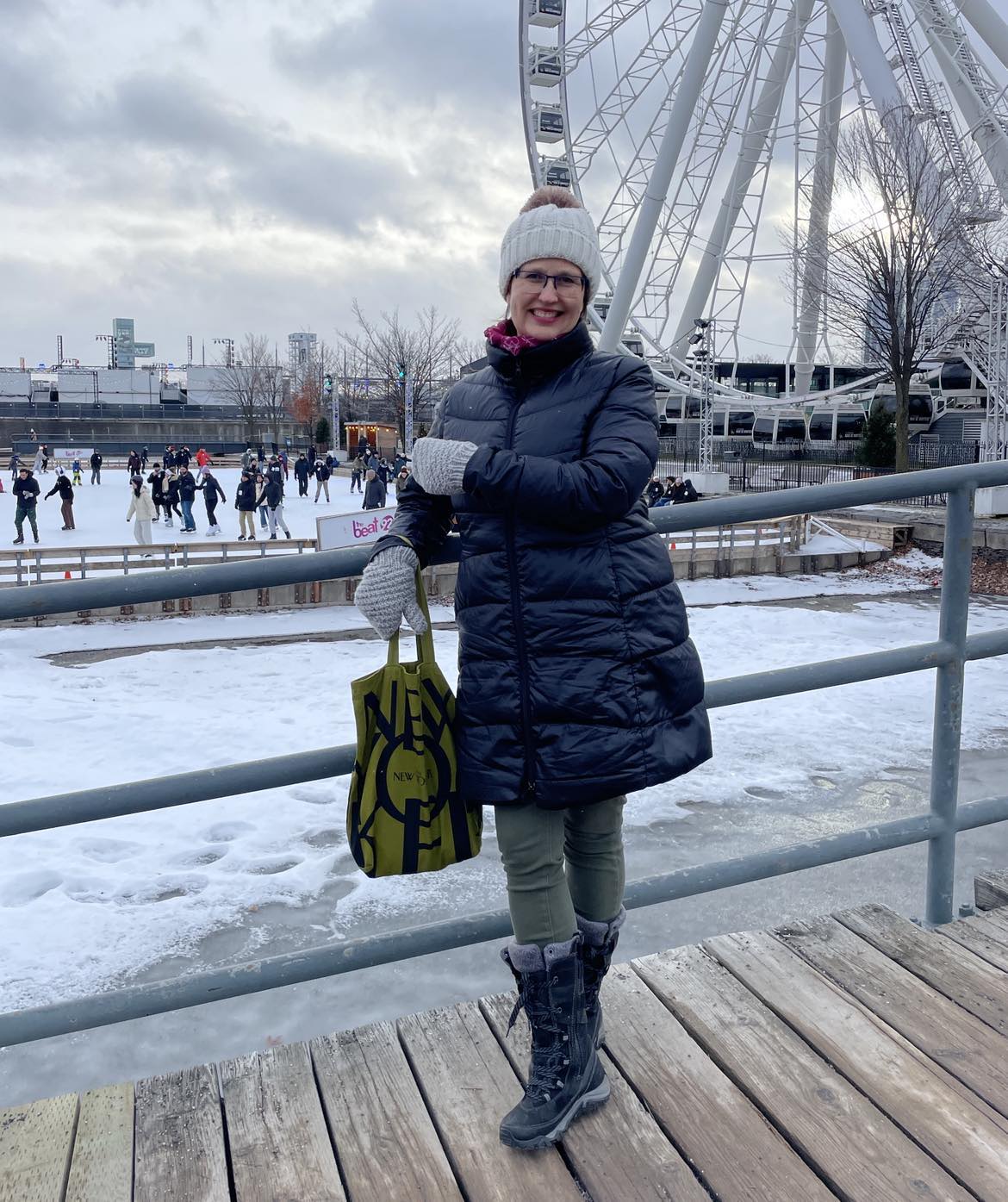
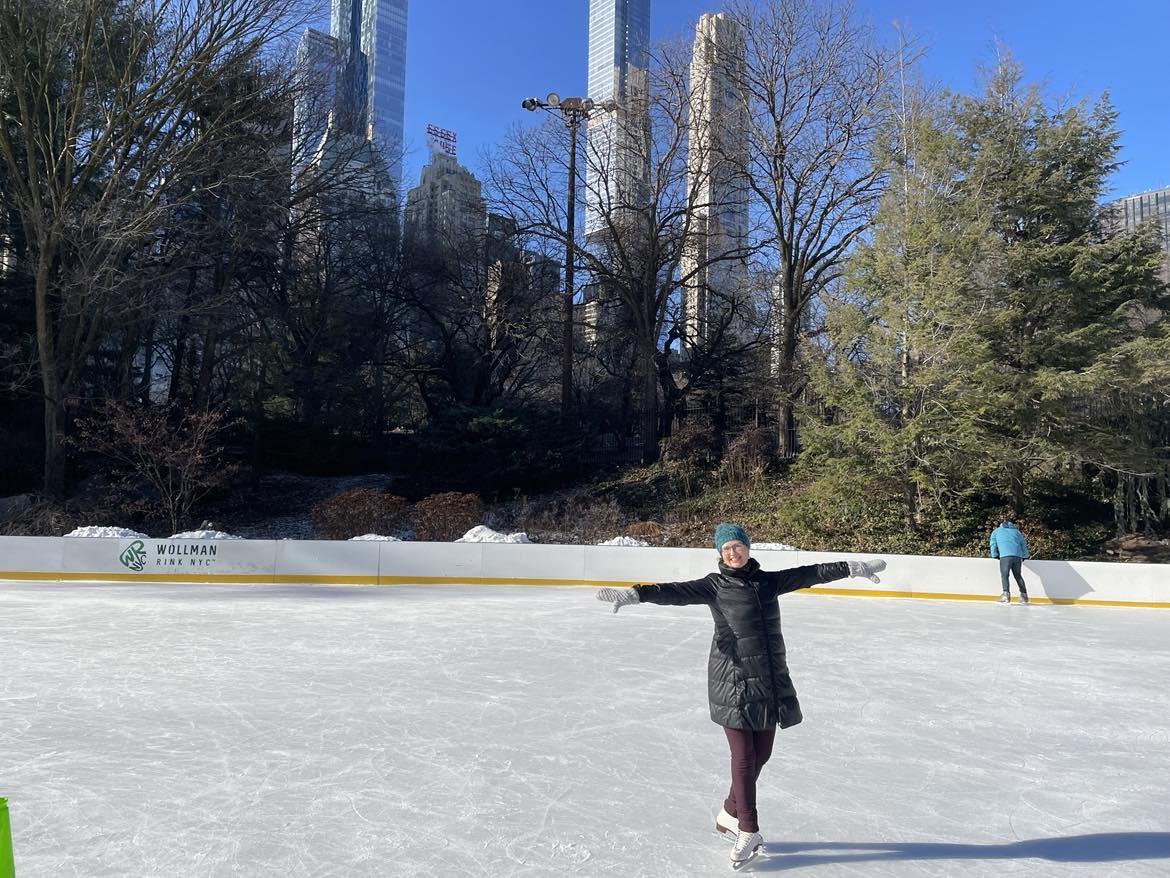
What else should we know about how you took your side hustle and scaled it up into what it is today?
In the years I was coaching figure skating, I was simultaneously writing fiction, personal essays, humor, and blogs, on the side. I published two books: a humor book, The Homeowner’s Guide to Greatness: How to handle natural disasters, design dilemmas, and various infestations like a champ and a practical “how-to” book, First Day on the Ice: Tips from a Professional Skating Coach (and Mom). It was challenging to find the time to write, between my coaching career, raising our son, and, eventually, caring for my mother. With limited time to really concentrate, I found that while I always tried to carve out some time to get some words on the page or the screen, writing usually fell to the bottom of my To-Do list. But this was frustrating because writing was the thing that lit me up!
When the pandemic hit and all the rinks where I coach closed for several months, I had a chance to reevaluate my schedule and my priorities. I realized that the rink hours (before school, after school, and Saturday mornings) meant I was not with my son as much as I wanted. Our son was seven at the time and he is now 12. I was in my late 40s and also acknowledged that if writing was my dream, then it was time to pursue it. The shift away from coaching skating was gradual. I didn’t decide on any one day that I was done with it, I just kept not going back to the rink. Even though it felt like the right transition for me, it also felt like a mourning process – I missed the skaters and coaches I’d worked with for decades, including my brother. Besides, skating had been my identity since I was 8 years old.
On January 1, 2021, I started writing my new book, which incorporates a lot of skating in the process of telling the braided story about my mother and son. As the words and the pages added up, I felt I was onto something; not just a completed manuscript but possibly a new way of being in the world. I started taking online writing classes with people like Allison K. Williams, Susan Shapiro, Courtney Maum, and Jane Friedman, among others. I started reading and re-reading craft books like Mary Karr’s The Art of the Memoir, Anne Lamott’s Bird by Bird, and Elizabeth Gilbert’s Big Magic. Before I knew it, I was immersed in the techniques and conceptual frameworks of writing the way I had been 20 years before, right after I got my MFA. My writing, which I’d been keeping off to the side (mostly for financial reasons) was now front and center.
Eventually, I set up a public writing account on Instagram and got more involved in the writing community on Twitter (which I’ve shifted over to Bluesky). This not only helped me understand the current publishing landscape, but I was able to “meet” other writers and start building an online (and eventually in-person) writing community that I now cherish. Publicly existing in the world as a writer has been thrilling. Skating is still in my life and probably always will be: I now write a lot of nonfiction about the sport and also for my substack, Sportsing.

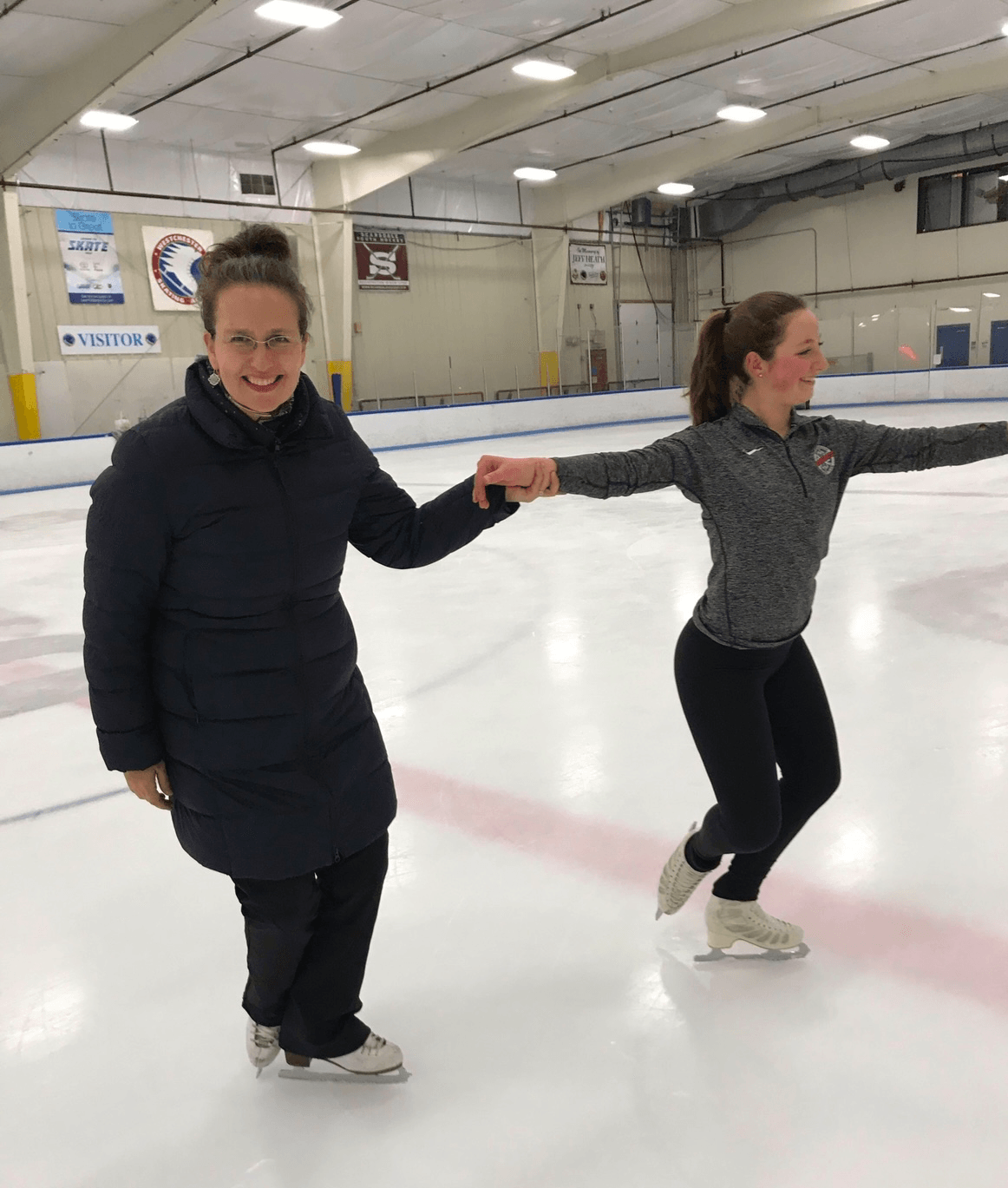
Let’s talk about resilience next – do you have a story you can share with us?
As a skater, I had to accept that, to learn new things, I had to fall repeatedly, maybe even hundreds of times before “landing a jump.” Not that I loved this aspect of the sport, but moving forward and improving meant I had to anticipate falls, get up from each one, and keep trying.
Likewise, writing involves a lot of rejection. In 2022 I decided to build my submitting strength and my ability to weather rejection by attempting to send out 100 submissions in a calendar year. I wanted to see if I could get to a place where I had so many pieces of writing out there and I was creating so many possibilities that each rejection would hurt less. I created a spreadsheet and “game-ified” the submission process.
This quantitative experiment did indeed take the pressure off. Not only did I become anesthetized (somewhat) to each individual rejection, but I published more work that year than I ever had before, for a total of 17 pieces. Keep in mind that this meant I received 83 rejections…also the most I’d ever received. I haven’t reached (or even aimed for) this same goal in the years since and I doubt I’ll ever attempt this again, but that experience has helped me take the “no”s and the “no-responses” less personally. Rejections, like skating falls, will probably always sting, but after such an aggressive year of “rejection training” I think they’ll always hurt a little less than they used to. I’m a “word person” but I’ve taken some solace in numbers: sometimes making a challenging task into a numbers game can de-emphasize the intense (and often negative!) emotions we have associated with it.
Contact Info:
- Website: https://www.jocelynjanecox.com
- Instagram: https://www.instagram.com/jocelynjanecoxwriter/
- Facebook: https://www.facebook.com/JocelynJaneCoxWriter/
- Linkedin: https://www.linkedin.com/in/jocelyn-jane-cox-937929152/
- Other: Bluesky: https://bsky.app/profile/jocelynjanecox.bsky.social
Newsletter: https://jocelynjanecoxnewsletter.myflodesk.com/vt7ugfauav
Substack: https://sportsing.substack.com


Image Credits
none :)


